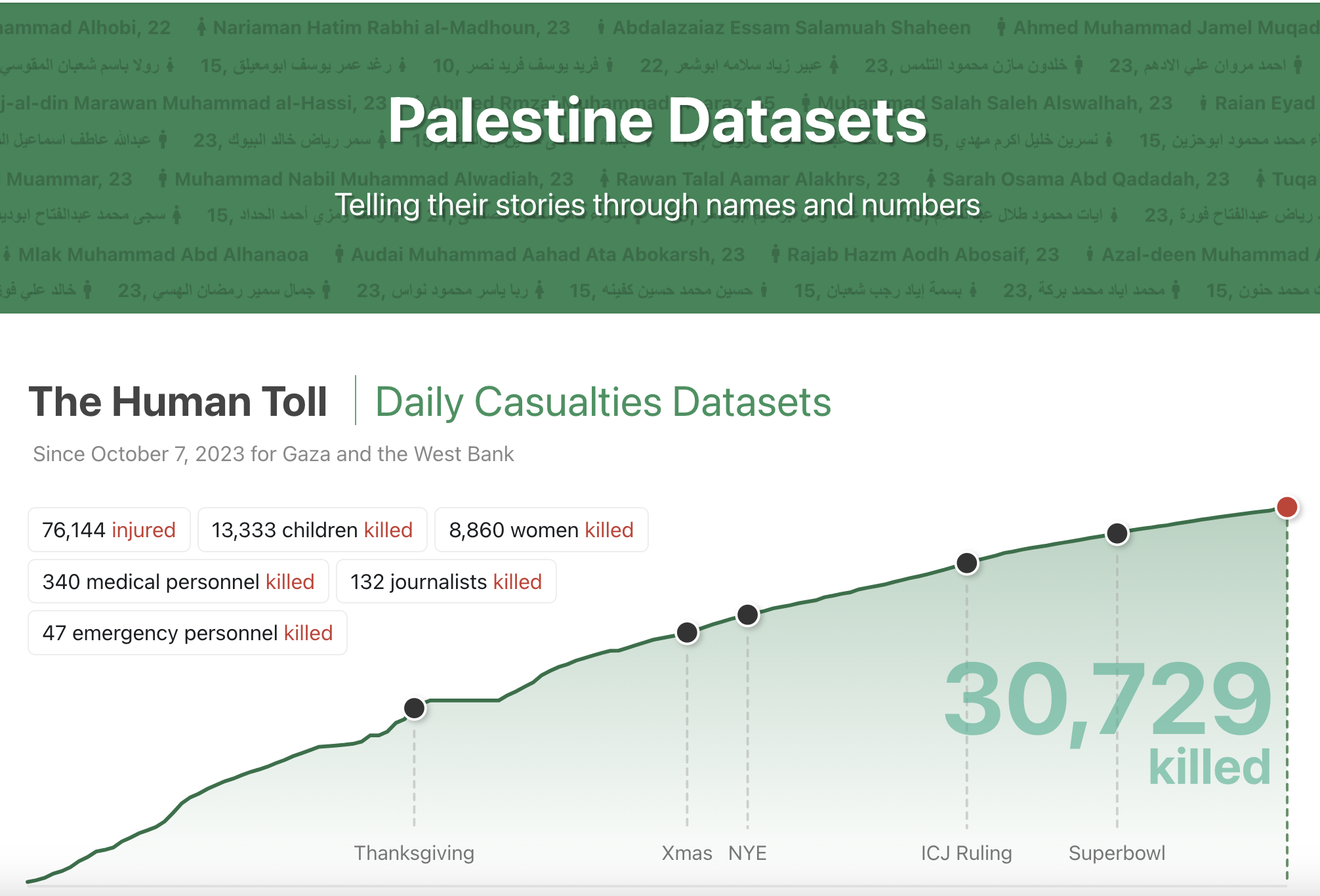Transforming Numbers into Narratives: Announcing T4P Open Source Dataset Platform
Tech for Palestine's dynamic, open source dataset platform is more than just a repository of information; it's a call to action, inviting content creators, analysts, and the global community to engage with the data, to tell the stories that need to be heard.

Numbers and data need context to tell powerful stories. Data visualization, when done well, is a powerful way of witnessing the world. Our new open source platform data.techforpalestine.org illuminates the human stories behind the data collected on casualties and deaths in Gaza since October 7th.
Initially crafted for researchers and developers, this platform is now broadening its horizons, welcoming digital and content creators who seek to delve into the depths of this data to tell compelling stories. Daily updates to the dataset build on the meticulously compiled work of the Gaza Ministry of Health, detailing lives lost amid Israel's ongoing offensive. As many details as possible are provided for each person in the dataset, Arabic names, dates of birth, identification numbers, and gender. The platform goes a step further by offering translations and calculating ages based on the provided dates of birth, ensuring accessibility and understanding for a global audience.
In addition to organizing the raw data, Tech for Palestine has developed a suite of tools to facilitate deeper engagement with the information. Users can see not only the most current and accurate numbers of those killed, they can access the timeline of those tragedies, with daily updates recorded in analysis-ready formats like JSON and CSV files. This flexibility caters to a wide range of technical proficiencies, enabling users to choose the format that best suits their analytical tools and storytelling needs.
Understanding the power of visualization, the platform also offers graphical representations of the data. These visualizations are not just charts and graphs; they are windows into the human cost of conflict, designed to make the data more comprehensible and impactful for a diverse audience. One heartbreaking application honors the children lost in the last five months, counting how many children with the name Muhammad, or Tala, or Adam, or Farah, have been killed.
Coupled with comprehensive documentation, the site guides users through accessing, interpreting, and leveraging the data to its full potential. Data.TechforPalestine's vision extends beyond the current scope of the project. The initiative aims to expand its datasets to encompass the devastating impact on lives in the West Bank and the repercussions on infrastructure. By doing so, the platform allows us to offer a more holistic view of the conflict's toll on Palestinian lives and livelihoods.
The power of data lies in its ability to tell stories, to humanize figures, and to evoke empathy and understanding. Lives lost are not mere statistics; putting numbers in the context of names is a powerful reminder of the human cost of conflict. Tech for Palestine's open source dataset platform is more than just a repository of information; it's a call to action, inviting content creators, analysts, and the global community to engage with the data, to tell the stories that need to be heard. Discover the stories that need to be told at https://data.techforpalestine.org/ – where data meets humanity, and where every number tells a story.